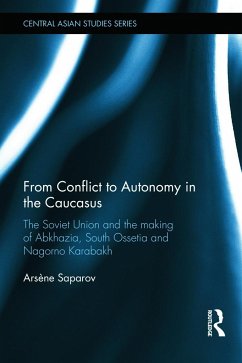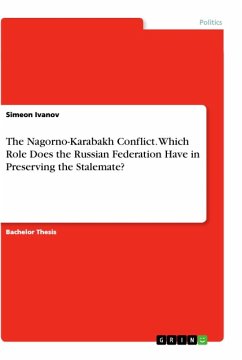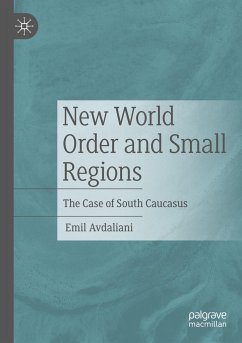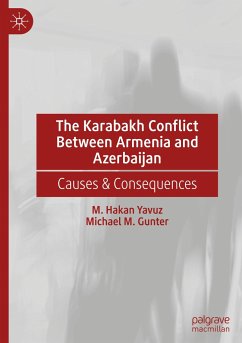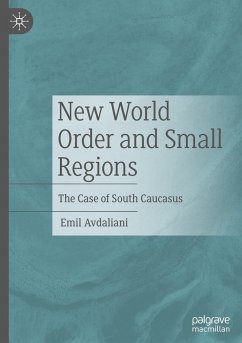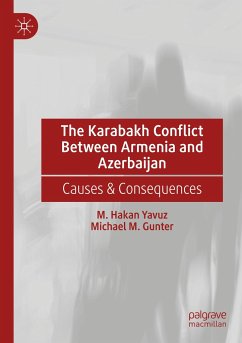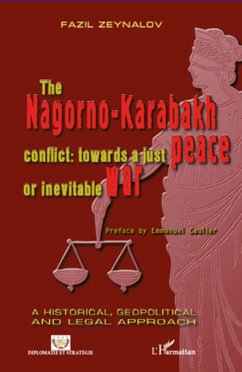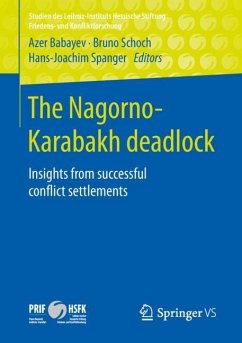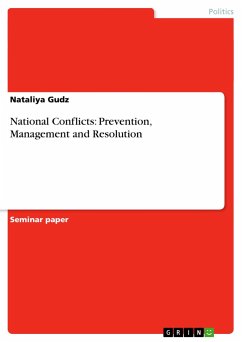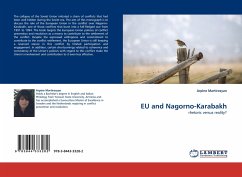
EU and Nagorno-Karabakh
rhetoric versus reality?
Versandkostenfrei!
Versandfertig in 6-10 Tagen
32,99 €
inkl. MwSt.

PAYBACK Punkte
16 °P sammeln!
The collapse of the Soviet Union initiated a chain of conflicts that had been well hidden during the Soviet era. The aim of this monograph is to discuss the role of the European Union in the conflict over Nagorno-Karabakh, one of those conflicts that burst into a full-fledged war from 1991 to 1994. The book targets the European Union policies of conflict prevention and resolution as a means to contribute to the settlement of the conflict. Despite the expressed willingness and commitment to contribute to the conflict settlement, the European Union is still keeping a reserved stance in this conf...
The collapse of the Soviet Union initiated a chain of conflicts that had been well hidden during the Soviet era. The aim of this monograph is to discuss the role of the European Union in the conflict over Nagorno-Karabakh, one of those conflicts that burst into a full-fledged war from 1991 to 1994. The book targets the European Union policies of conflict prevention and resolution as a means to contribute to the settlement of the conflict. Despite the expressed willingness and commitment to contribute to the conflict settlement, the European Union is still keeping a reserved stance in this conflict by limited participation and engagement. In addition, certain shortcomings related to coherence and consistency of the Union's policies with regard to this conflict make the Union's involvement and contribution to it even less effective.



